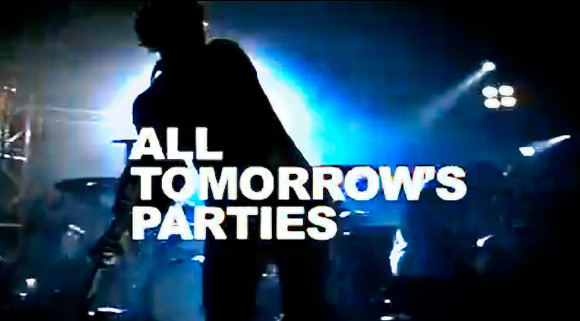

Ever since the release of Black Star’s self titled debut, the two emcees that comprise the duo, Mos Def and Talib Kweli, have had to live with the burden of a classic. The critical success of this stark and insightful album meant the two relative unknowns were hoisted upon the shoulders of socially aware Hip-Hop and whilst they soon retreated to individual projects, Mos only made matters worse for himself when his solo debut
Black on Both Sides was every bit a classic as
Mos Def and Talib Kweli are Black Star.
Before he was even 25, Mos Def had two undeniably excellent albums under his belt and the inevitable disappointments of his last two releases have meant we have all been waiting for his ‘return to form’. However, whilst we all expected this to come in the form of a Black on Both Sides pt 2 or a Black Star reunion, his latest release The Ecstatic, succeeds through weaving the loose ends of his last two works into a cohesive and genuinely distinctive sound.
With opener ‘Supermagic’ the album begins in a blaze of electric guitar and feverishly delivered rhymes. The effortless synthesis between beat and lyric is hugely reassuring, as if to say ‘This time things will be different’, but as soon as the sheer impact of this track wears off, one has to wonder how different this is to his previous Rock ’n’ Roll failings. In fact, the album is littered with musical avenues Mos Def has ventured into before and failed to return from. The thudding timpani of ‘Quiet Dog Bite Hard’ sounds almost copy and pasted from the rhythmic experiments of his sophomore album The New Danger, and the ironically named ‘Life in Marvellous Times’ would’ve slotted neatly alongside the synth laden beats of 2006’s True Magic. However, where lack lustre production had left previous albums feeling muddled and directionless, attention to detail and a stellar cast of producers have seamlessly integrated a range of genres into one consistent work.
The Ecstatic seems designed to recover old ground, as Mos serves up everything which made his music great. As incisive as ever, his lyricism is politically charged yet never preachy. Whilst he will always be pigeon holed as the darling of political rap, he aspires to above all be poetic, meaning he has the freedom to drift between topic and mood, without the album losing focus. Furthermore, collaborations have been noticeably absent from The New Danger and True Magic, yet here they’re back in force. Highlights include a well overdue duet with Talib Kweli on the J Dilla produced ‘History’ and the wonderful ‘Auditorium’ which combines the forces of Mos Def, producer Madlib and legendary emcee Slick Rick to craft quite simply the most inspired Hip-Hop collaboration of the year.
With Mos Def’s attention increasingly shifting to acting in the past few years, The Ecstatic didn’t just need to be good it needed to be great. Needless to say, it is! However, it succeeds on its own terms. Admittedly it makes little attempt to expand into new areas, but it remains a unique concoction of his jazz, soul and rock influences; more a reassurance than a rehash. Intelligent Hip-Hoppers rejoice, your prodigal son has returned.
 For the past seve
For the past seve n years The X Factor has been the bench mark of poor taste. Yet the debate which accompanies every series has become as tiresome as the show itself. The two tribes which emerge each year always regurgitate the same arguments: one side claiming that Simon Cowell is bringing about cultural oblivion, the other insisting it is good, clean, TV fun, which, on occasion, produces some truly great pop stars.
n years The X Factor has been the bench mark of poor taste. Yet the debate which accompanies every series has become as tiresome as the show itself. The two tribes which emerge each year always regurgitate the same arguments: one side claiming that Simon Cowell is bringing about cultural oblivion, the other insisting it is good, clean, TV fun, which, on occasion, produces some truly great pop stars.











